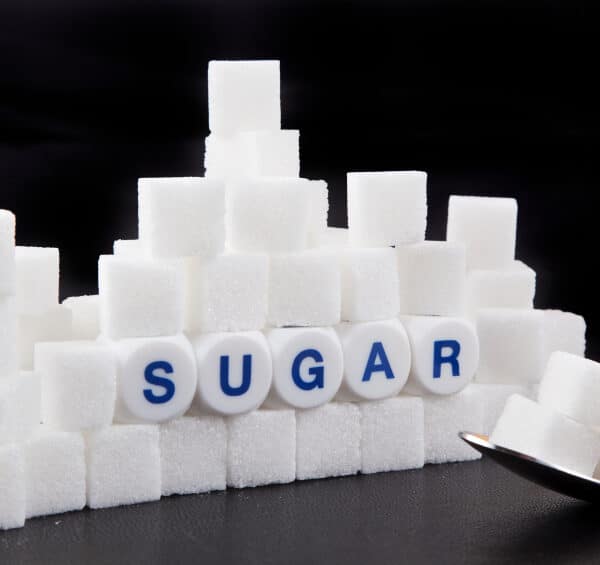
Sugar, obesity and diabetes
This issue typically is not as simple as media reports portray. There is currently insufficient evidence that total sugars or added sugars are directly linked to obesity, although there is some evidence of an association with sugar-sweetened beverages. There is also insufficient evidence to draw firm conclusions around sugars intake having a direct effect of type 2 diabetes. A diet high in calories from any source whether sugars, fat or any other nutrient can contribute to weight gain, and being overweight increases your risk for developing diabetes.
Too much sugar?
There is a responsibility for all sectors of the community – food industry, caterers, carers, health professionals and other service providers to reduce obesity. Part of the solution will lie in better eating patterns which includes a reduction in sugars. We are according to dietary surveys still eating too much, with major sources in the diet coming from cereal products, in particular biscuits, cakes, pastries and fruit pies; sugar preserves and confectionary and the highest contributor, sugared soft drinks. Some foods that contain natural sugars like dairy (lactose) and fruit (fructose) are nutrient-rich, as are some foods that may have added sugars like cereals and yogurt but that still provide vitamins and minerals.
These days with labelling regulations for pre-packed foods, sugars are hardly ‘hidden’, as they must be declared on food packaging. As for addiction, food addiction is not a medically defined diagnosed disorder and there is this currently no evidence to qualify sugars as addictive.
The best nutritional advice remains to eat a variety of foods and that a varied diet can include a small amount of sugars. While a diet high in sugars and sugar-containing foods may impact on calorie intake and weight, and therefore on diabetes and heart disease, sugar-containing foods particularly those that contain other nutrients can be included in a balanced diet.



